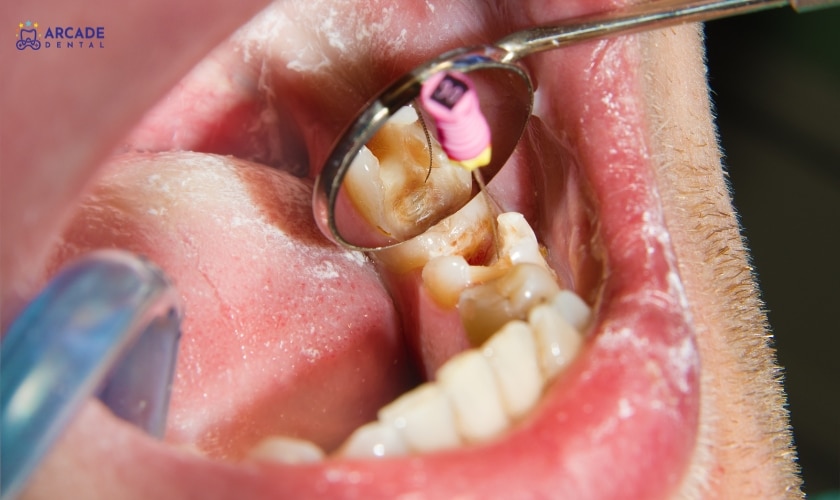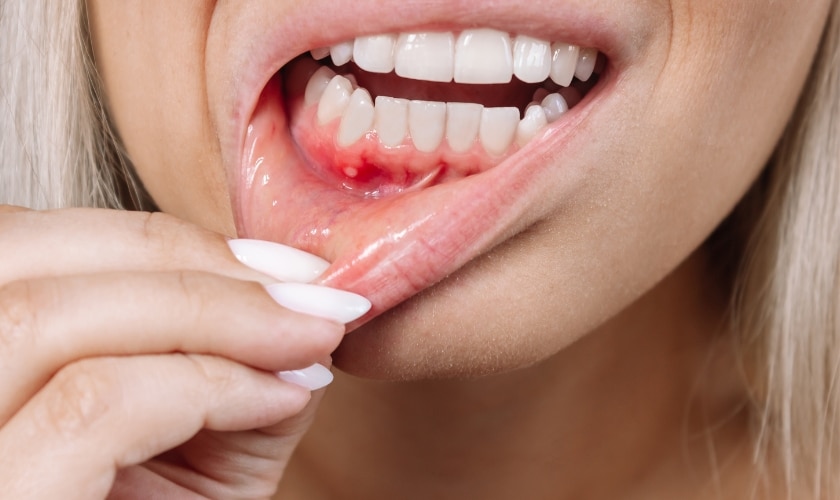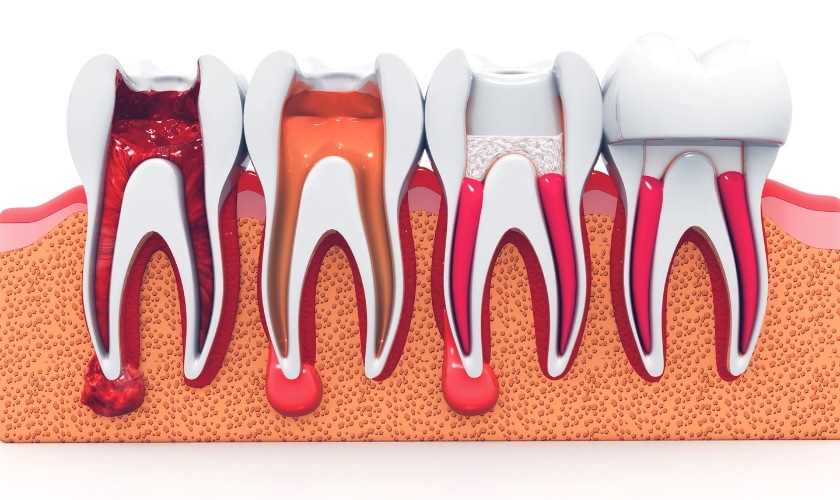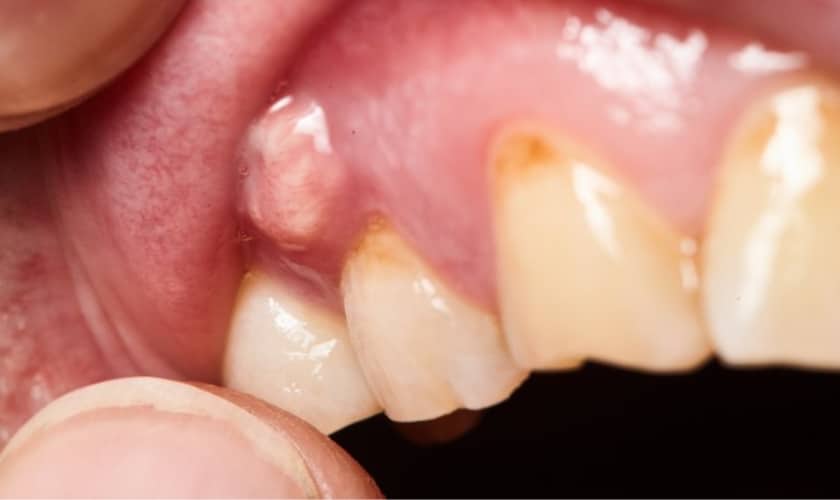
Are root canal infections causing you unbearable pain? Discover expert tips and simple habits to maintain oral health and prevent future infections. Bid farewell to root canal discomfort and embrace a healthier smile through our preventive measures.
Root canal infections are a common dental problem that affects millions of people every year. They occur when the soft tissue inside the tooth, known as the pulp, becomes infected with bacteria. This can cause severe pain and discomfort and may even lead to tooth loss if left untreated.
What is a Root Canal Infection?
A root canal infection is a dental condition where the pulp, the soft tissue inside a tooth, becomes infected with bacteria. This infection can lead to severe pain and, if left untreated, may result in tooth loss.
How Do Root Canal Infections Develop?
Root canal infections develop when bacteria enter the innermost part of a tooth, the pulp, usually through deep cavities, cracks, or trauma. Once inside, these bacteria multiply and cause inflammation, leading to pain and potential tooth damage if not treated promptly.
Importance of good oral health in preventing root canal infections
- Proper Oral Hygiene: Maintaining good oral hygiene is the foundation for preventing root canal infections. Regular brushing and flossing help control harmful bacteria and plaque buildup, reducing the risk of infection.
- Addressing Plaque Buildup: Neglecting oral hygiene can lead to plaque accumulation on teeth and gums, providing a favorable environment for bacteria to thrive. These bacteria can penetrate teeth through cavities or cracks, leading to pulp infection.
- Food Particle Removal: Regular brushing and flossing also remove trapped food particles between teeth, preventing bacterial growth and potential root canal infections.
- Regular Dental Checkups: Visiting the dentist in Pharr, TX for routine checkups and cleanings is crucial. Dentists can remove plaque that daily routines miss and identify issues early to prevent them from progressing to root canal infections.
- Healthy Diet: Maintaining a balanced diet with limited sugary and acidic foods is vital. High sugar and acid content can weaken tooth enamel, making it more susceptible to decay and infection. Dietary choices contribute significantly to overall oral health.
Tips for maintaining good oral hygiene:
- Regular Brushing Routine:
Brush your teeth at least twice daily with a soft-bristle toothbrush and fluoride toothpaste. This practice removes plaque and bacteria, safeguarding against tooth decay and gum disease, thus preventing root canal infections. - Daily Flossing Habits:
Flossing every day is crucial for eliminating food particles and plaque from between teeth, inaccessible by a toothbrush. This reduces the risk of cavities, gum disease, and ultimately, root canal infections. - Antimicrobial Mouthwash Usage:
Incorporate an antimicrobial mouthwash into your oral care routine to further reduce mouth bacteria. Select one targeting plaque or gingivitis to maintain healthy gums. - Mindful Dietary Choices:
Limit consumption of sugary and acidic foods, as they can weaken tooth enamel, facilitating bacterial penetration into the inner tooth layers. Protect against tooth decay by controlling your diet. - Hydration with Water:
Stay hydrated by drinking water throughout the day. This aids in rinsing away food debris, neutralizing mouth acids, and promoting saliva production – a crucial defense against bacteria. - Avoid Tobacco Products:
Quit smoking and refrain from using tobacco products, as they not only stain teeth but also increase the risk of gum disease, thereby reducing the need for root canal treatments.
– Regular brushing and flossing
susceptible to infection. Therefore, it’s important to brush gently in circular motions, covering all tooth surfaces, and pay special attention to plaque-prone areas. For effective flossing, choose a comfortable method and use a gentle sawing motion between teeth, ensuring thorough cleaning. Proper technique in both practices is essential for maintaining oral health and preventing the need for root canal treatments.
-Using mouthwash
A Simple Yet Potent Measure for Safeguarding Your Oral Well-being and Preventing Root Canal Infections. From rejuvenating your breath to enhancing overall oral cleanliness, and even combating infection-causing microorganisms, mouthwash boasts a multitude of benefits. Therapeutic mouthwashes, enriched with active components like antibacterial agents and fluoride, offer more than just a breath of fresh air – they actively combat harmful oral bacteria.
By incorporating regular mouthwash usage into your dental routine, especially after brushing, you can substantially reduce the accumulation of bacteria. This, in turn, lowers the risk of root canal infections arising from factors such as plaque, decay, gum disease, or abscesses.
– Eating a balanced and healthy diet
Be cautious of sugar and acid in your beverages. They can harm your tooth enamel and raise the chances of getting a root canal infection. Opting for water or unsweetened drinks is a smart choice to keep your teeth safe and healthy.
Your diet also plays a crucial role in preventing root canal issues. Eating foods packed with essential nutrients while cutting down on sugary and acidic items keeps your teeth and gums strong. This lowers the risk of decay and the need for root canal treatments in Pharr, TX.
– Limiting sugar intake
Beware of hidden sugars, even in foods that don’t taste sweet. Sauces, condiments, and some bread varieties may secretly contain added sugars. Stay alert and opt for sugar-free or low-sugar options whenever feasible.
Prioritize excellent oral hygiene: Even when you enjoy sugary foods, maintaining a diligent oral care routine can mitigate their impact. Don’t forget to brush your teeth after indulging in sugary meals or snacks, and make daily flossing a regular part of your routine to eliminate any lingering food particles.
Consider sugar-free gum: Chewing sugar-free gum can kickstart saliva production, which aids in neutralizing acids and cleaning your mouth. It’s a convenient choice after meals when you can’t brush your teeth.
By attentively monitoring your sugar consumption and making healthier dietary choices, you can substantially decrease the risk of root canal infections and protect your oral health.
How to identify early signs of a root canal infection?
Root canal infections can lead to significant pain and discomfort if left unaddressed. To prevent the need for a root canal procedure, it’s crucial to recognize the initial indications of an infection. Here’s a step-by-step guide to identifying these key indicators:
- Persistent Pain: Early stages of a root canal infection are often marked by continuous pain in one or more teeth. This pain can vary in intensity, ranging from throbbing to sharp or dull, and it may exacerbate when you bite down on food or apply pressure to the affected area.
- Sensitivity: Sudden sensitivity to hot or cold foods and beverages can signal a potential root canal infection. This heightened sensitivity may extend to neighboring teeth as well.
- Discoloration: Changes in the color of a tooth may be an early indication of an infected root canal. The affected tooth might appear darker than the surrounding teeth due to decay and damage within.
- Swelling: Swelling around the infected tooth and/or gums is another telltale sign. Swelling can vary from mild inflammation to severe enough to cause difficulty swallowing or breathing.
- Bad Breath: Despite maintaining proper oral hygiene, persistent bad breath can be indicative of an infected root canal. Bacteria accumulation in the infected area can lead to unpleasant odor even after regular brushing and flossing.
Common misconceptions about root canal treatments
Root canal treatments have garnered their fair share of myths and misconceptions, often causing unwarranted fear of this standard dental procedure. In reality, root canals are a highly effective means of salvaging a damaged or infected tooth while alleviating pain. Let’s delve into these misconceptions step by step and unveil the truth behind them.
Myth #1: Root Canals Are Excruciatingly Painful
The prevailing myth suggests that root canals are agonizing procedures. This misconception likely stems from outdated techniques and equipment of the past. However, thanks to technological advancements and refined anesthesia, modern root canals are virtually painless. Most patients report experiencing minimal discomfort both during and after the treatment.
Myth #2: Root Canal Treatments Cause Illness
A widely held belief asserts that root canal treatments can lead to various health issues like heart disease, arthritis, or even cancer. This myth has been debunked by extensive research conducted by reputable organizations, including the American Association of Endodontists. Their studies have found no evidence linking root canal treatments to any systemic health problems.
Myth #3: Tooth Extraction Is Preferable to Root Canal
Some individuals believe that extracting a diseased or damaged tooth is a better option than undergoing a root canal treatment. However, the preservation of your natural teeth should always be the primary choice when feasible. Extracting a tooth might appear as a quick fix, but it’s important to consider the long-term impact on your oral health and overall well-being.
These misconceptions have overshadowed the benefits and effectiveness of root canal treatments in Pharr, TX, which can save your natural teeth and provide lasting relief from dental pain.




